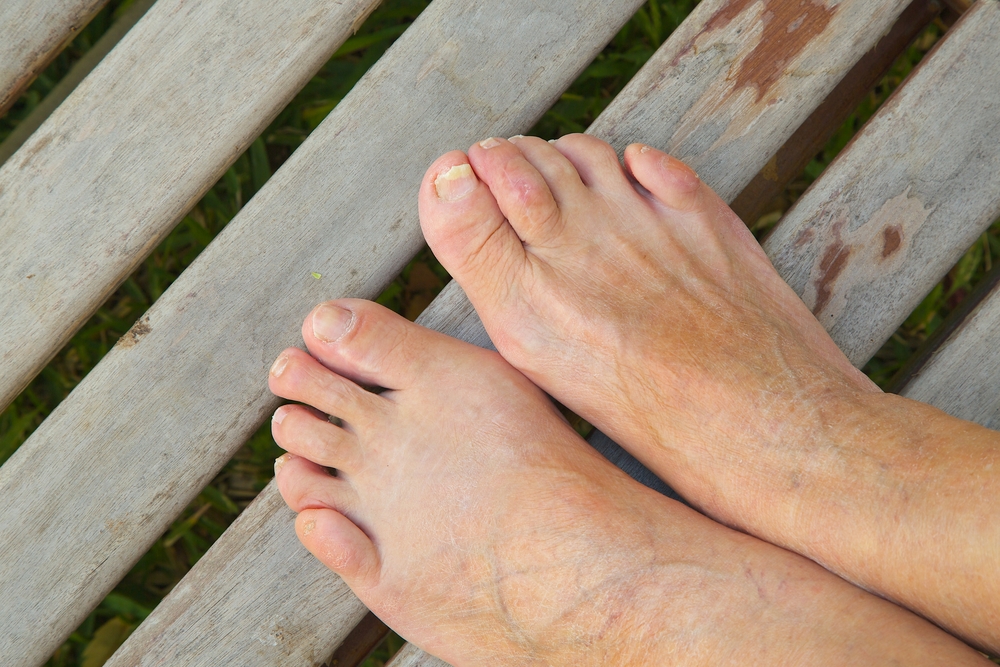A hammertoe occurs when the middle joint in a toe is stuck in a bent position and the toe curls down, rather than laying flat. This deformity can develop in any toe other than the big toe. An imbalance in the muscles or tendons in the feet can lead to a hammertoe forming over time. Genetics may predispose certain people to hammertoes, which can be brought on by wearing pointy, narrow high heels. Having bunions, or certain diseases such as Charcot-Marie-Tooth, diabetes, or arthritis, can also contribute to the development of a hammertoe. In the early stages, the contraction is flexible and the toe can still move. In time, the bent toe can become rigid as the condition progresses. That is why it is important to seek the care of a podiatrist in the early stages, when more conservative therapies can be deployed to correct the deformity without surgery.
Hammertoe
Hammertoes can be a painful condition to live with. For more information, contact one of our podiatrists from Itasca Foot & Ankle. Our doctors will answer any of your foot- and ankle-related questions.
Hammertoe is a foot deformity that affects the joints of the second, third, fourth, or fifth toes of your feet. It is a painful foot condition in which these toes curl and arch up, which can often lead to pain when wearing footwear.
Symptoms
- Pain in the affected toes
- Development of corns or calluses due to friction
- Inflammation
- Redness
- Contracture of the toes
Causes
Genetics – People who are genetically predisposed to hammertoe are often more susceptible
Arthritis – Because arthritis affects the joints in your toes, further deformities stemming from arthritis can occur
Trauma – Direct trauma to the toes could potentially lead to hammertoe
Ill-fitting shoes – Undue pressure on the front of the toes from ill-fitting shoes can potentially lead to the development of hammertoe
Treatment
Orthotics – Custom made inserts can be used to help relieve pressure placed on the toes and therefore relieve some of the pain associated with it
Medications – Oral medications such as anti-inflammatories or NSAIDs could be used to treat the pain and inflammation hammertoes causes. Injections of corticosteroids are also sometimes used
Surgery – In more severe cases where the hammertoes have become more rigid, foot surgery is a potential option
If you have any questions please contact our offices located in Itasca and Hoffman Estates, IL . We offer the newest diagnostic and treatment technologies for all your foot and ankle needs.
